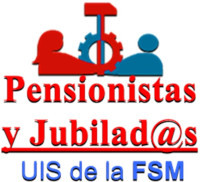Analysis of Documents of the ILO
The previous year we spoke at the 109th congress and one of our conclusions was to focus on the difference we have observed between the text and the subtext of ILO documents and the consequent confusion when the text is accepted without analyzing the subtext.
This year we want to emphasise this issue which we believe is essential for debate at congresses that have international repercussions.
The method we are going to use is the analysis of this text and subtext in a concrete and content document that the ILO has published on April 29, 2022.
The aforementioned document is entitled:
Gender equality and women's empowerment in the world of work in situations of fragility, conflict and disaster
View on: https://www.ilo.org/wcmsp5/groups/public/---ed_emp/documents/publication...
Gender – sex
The concept of gender, coined in feminist studies as a tool to discern how patriarchal society assigns roles and stereotypes to the sexes and then establishes a justified sexual hierarchy in those assignments, is used in the subtext, throughout the 11 occurrences of the term identity, to confuse the need to abolish gender with the desire to choose it and turn that desire into law.
Resilience - Endurance
The term resilience takes on great relevance in the document as evidenced by its 114 occurrences. But its definition in the glossary is careful not to use the synonym endurance. In situations of fragility, conflict and disaster it is very important that the population endure stoically, which is part of the "virtues" that patriarchy demands of "good women" and that it documentsor repeats tirelessly as necessary in crisis situations. Systemic crises that are provoked by the Patriarcado Capitalista (Wars, Climate, Economy, Politics) himself.
Peace – of the dead?
That resilience, that stoic endurance in crises, curbs the risks of social explosion and therefore helps to maintain a "hypocritical peace"
Empowerment – collective emancipation
Compared to the 92 occurrences of the term empowerment, there are zero occurrences of the term emancipation. We can hardly defend that the objective of the document is the collective emancipation of women, rather it advocates a concept dear to neoliberalism, individualism in the form of personal, individual empowerment.
Fragility – inequality, capitalist contradiction
Situations of fragility are accentuated for the most vulnerable groups, which owe their existence to the gender and class inequalities that are inevitable in capitalist patriarchy, since these inequalities derive from the contradictions of the system.
Conflict – imperialism
It is impossible to avoid warlike conflicts in a Capitalist Patriarchal system in its imperialist phase. Not only is it impossible, but it is this phase that provokes them. But the document does not mention the concept of imperialism even once, compared to the 246 times it mentions the conflict.
Disasters – capitalist industry
Nor does the document deal with relating disasters, which it mentions 201 times, with the industrialization of the economic system, which it only mentions 3 times indirectly. The consequences of climate change seem to be of concern, but not its root causes.
Reconstruction – accumulation
Nor does it relate the process of rebuilding conflict or disaster zones to the great benefits that big capital derives from these reconstructions. Both terms appear 11 times, but when talking about benefits they do not refer to those mentioned above, but to the benefits that can be achieved in terms of gender equality if the recovery imposes that condition.
Conditions – enslavement
Apart from the aforementioned condition, it is known that the conditions in reconstruction go through the granting of loans that dangerously indebted the areas to be rebuilt and subject them to economic and political criteria that result in the practical enslavement of their working population.
Liberal Analysis – Socialist Analysis
With what has been seen so far, it is clear that the analysis of this document is a liberal analysis, which aims to preserve the system, make changes to sustain it, that is sustainable development. Far from a socialist analysis that would seek a social transformation in which inequality, exploitation and crises would have no place
Economic evaluations – social evaluations
It is perceived in the document that the recommendation of economic evaluations takes precedence over social evaluation, which attempts interventions that are accepted and that soften the effects of imperialist interventions. It does not defend at all a social revolution that puts an end to the cause of all crises: the CAPITALIST PATRIARCHY.



